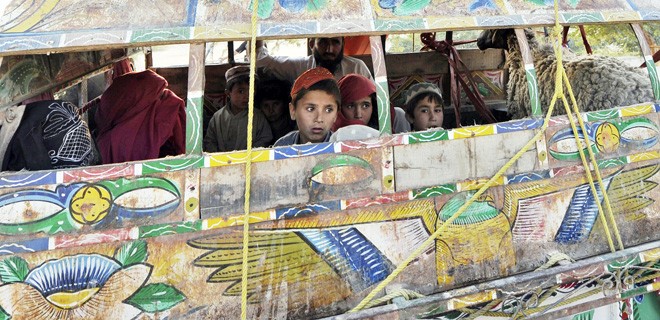

The talk of an impending military operation in North Waziristan Agency started several years ago, but a full-scale ground offensive despite pressure from the United States and many Pakistanis has yet to take place.
However, the issue is revived whenever acts of terrorism register an increase in number and intelligence agencies trace the attacks to sponsors based in North Waziristan. Lately, the military has been carrying out airstrikes in North Waziristan in retaliation to the bombings and targetted killings conducted by the militants.
The occasional airstrikes that began late last year and were last conducted on May 22 forced scores of families to abandon North Waziristan and seek refuge wherever feasible, but many returned home when the situation became normal as they cannot afford to live in rented houses in unfamiliar places away from their tribal abode. Some have overcome the urge to come back to North Waziristan as they believe a big military operation would eventually be undertaken. Many displaced families said it was better to leave now when the circumstances aren’t so bad than later in an emergency situation.
Like the Mehsud tribes people, who were displaced en masse from South Waziristan following the military operation in October 2009, the Utmanzai Wazir and Dawar tribes living in North Waziristan, too, are unlikely to stay in relief camps in case they are dislocated. The displaced Mehsuds preferred renting houses and staying with relatives in places such as Tank, Dera Ismail Khan, Lakki Marwat, Bannu, Peshawar and even as far as Karachi instead of living in any camp set up by the government as this would have violated their privacy and strong code of honour. The Pashtun tribes of North Waziristan are no different and in case of their displacement the government would have to make arrangements to provide them food and non-food supplies at accessible distribution points.
Many families from North Waziristan that left their villages and towns in recent years due to the uncertain situation are now well-settled in their new homes and ready to welcome their relations considering to leave now. An unspecified number of families have crossed over to Afghanistan’s Khost province and more could take the same route if a major military action was undertaken in line with the decision of the tribal jirga and Amn (peace) Committee, which includes Hafiz Gul Bahadur, head of the local militants who aren’t part of the Tehrik-i-Taliban Pakistan (TTP).
Already, several hundred Pakistanis, including civilians and militants, have taken refuge in Afghanistan’s border provinces -- Kunar, Nuristan and Nangarhar -- after repeated operations by Pakistan’s security forces in Malakand division, Mohmand, Bajaur, Khyber, Kurram and other tribal agencies. The migration of more Pakistanis to Afghanistan would create new challenges for Islamabad, particularly by the militants who would use their sanctuaries across the Durand Line to launch attacks in Pakistan.
A fresh exodus of families from North Waziristan was reported in the wake of the recent airstrikes by the military. Though there is some discrepancy in figures collected by different government departments, the documents show that most internally displaced persons (IDPs) used the Mirzail Checkpost in Frontier Region Bannu to enter Bannu city on their way out to North Waziristan. The figures available with the commissioner of Bannu division showed that a total of 502 vehicles from May 22 to May 27 brought 11,113 persons, including 2,217 males, 3,734 females and 5,162 children from North Waziristan, mostly from the Mir Ali and Miranshah sub-divisions. On certain days, no IDPs were able to leave North Waziristan due to curfew enforced by the government.
The data provided by the Fata Disaster Management Authority (FDMA) showed that till May 27, a total of 748 families left North Waziristan. They totalled 9,676 individuals, including 2,253 males, 3,177 females and 4,246 children up to the age of 16 years. A striking aspect of the exodus was that on May 23, as many as 125 families totalling 1,161 individuals left North Waziristan and among them were 251 unaccompanied minors, both boys and girls, travelling with their relations.